aortic valve replacement surgery
in open-heart surgery, the surgeon makes an incision in the middle of the chest
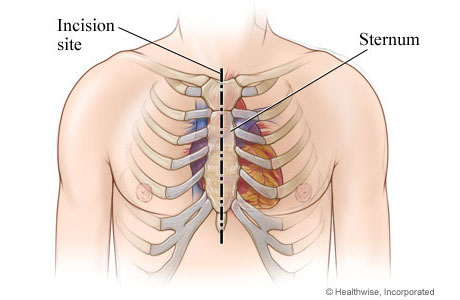
slide 1 of 5
slide 1 of 5, in open-heart surgery, the surgeon makes an incision in the middle of the chest,
aortic valve replacement surgery may be done as an open-heart surgery or as a less invasive surgery. in open-heart surgery, the surgeon makes an incision in the middle of the chest and cuts through the breastbone (sternum). in less invasive surgery, the surgeon makes smaller incisions and does not open the chest.
in less invasive surgery, the surgeon may make an incision between the ribs
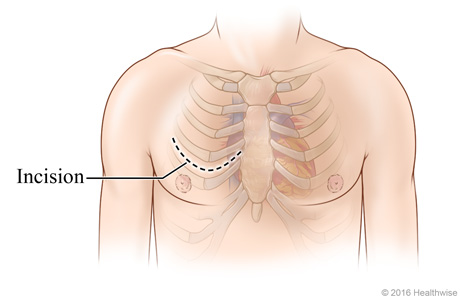
slide 2 of 5
slide 2 of 5, in less invasive surgery, the surgeon may make an incision between the ribs,
in a less invasive surgery, the surgeon may make an incision between the ribs. the surgeon uses this incision to work on the heart. the surgeon does not cut the sternum.
the chest is opened to expose the heart
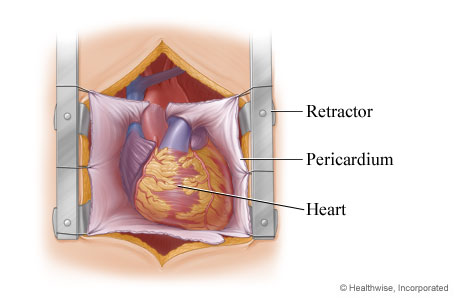
slide 3 of 5
slide 3 of 5, the chest is opened to expose the heart,
in an open-heart surgery, the surgeon opens the chest with a retractor to expose the heart. the surgeon opens the lining that protects the heart (pericardium).
the damaged aortic valve is removed
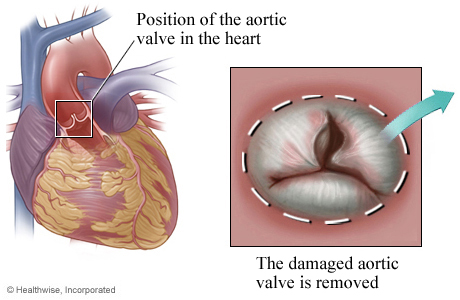
slide 4 of 5
slide 4 of 5, the damaged aortic valve is removed,
next, the surgeon removes the damaged aortic valve.
the replacement valve is sewn in place
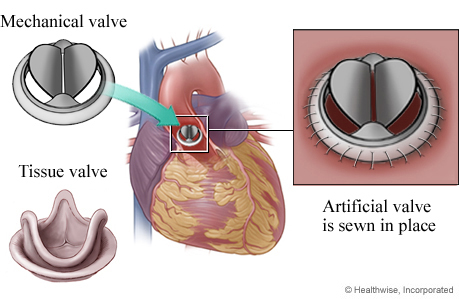
slide 5 of 5
slide 5 of 5, the replacement valve is sewn in place,
finally, the surgeon inserts the replacement valve into the aorta. the replacement valve may be either mechanical or made of animal tissue. the surgeon sews the valve to the annulus, which is a ring of tissue that connects to the leaflets of the aortic valve.
current as of: october 2, 2023
author: healthwise staff
clinical review board
all healthwise education is reviewed by a team that includes physicians, nurses, advanced practitioners, registered dieticians, and other healthcare professionals.